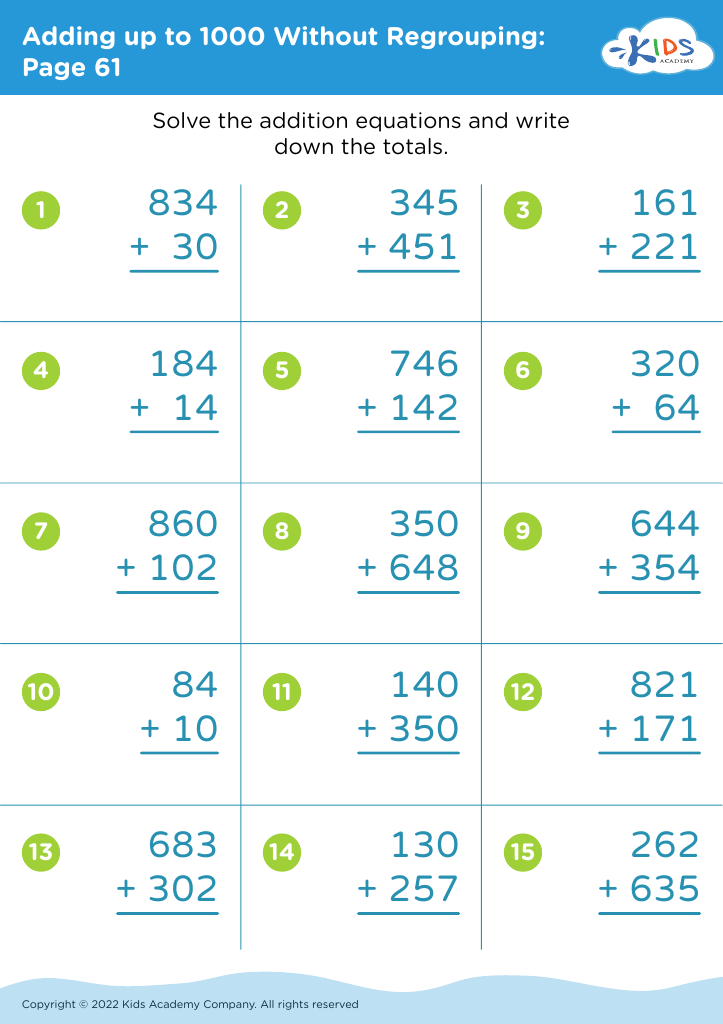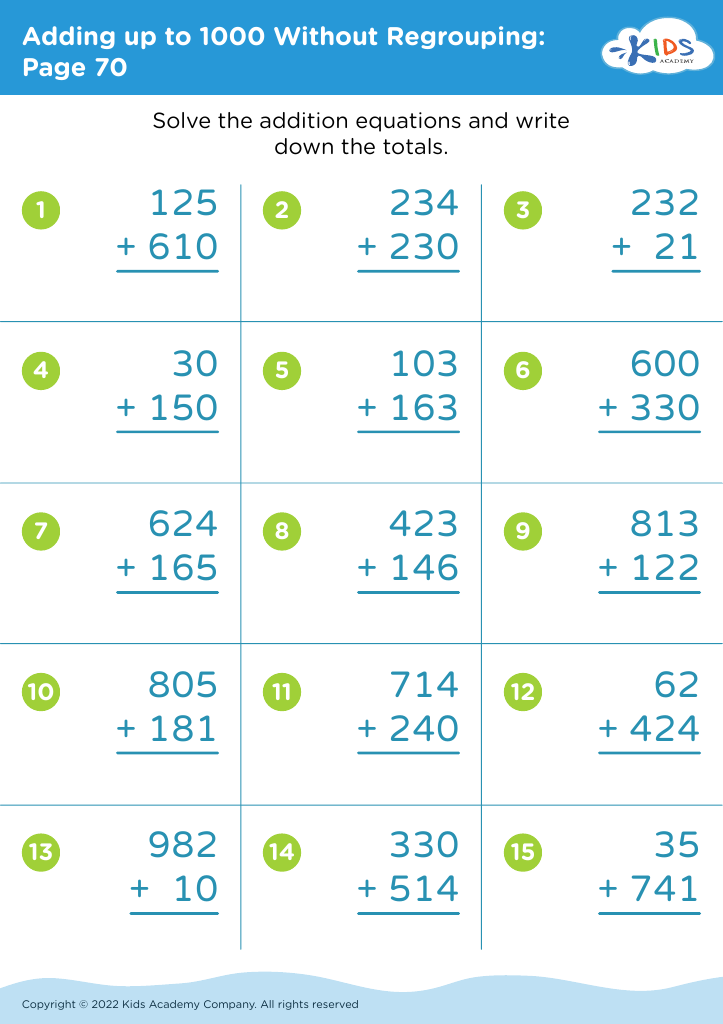Basic Addition Grade 2 Adding up to 1000 Without Regrouping Worksheets
4 filtered results
-
From - To
Help your second graders master fundamental math skills with our "Basic Addition Grade 2 Adding up to 1000 Without Regrouping Worksheets." These thoughtfully designed worksheets offer young learners a practical way to practice and strengthen their addition skills with large numbers, up to 1000, without worrying about regrouping. Each exercise is tailored to engage students with clear, straightforward problems that build confidence and promote mathematical fluency. Perfect for classroom practice or at-home learning, these worksheets ensure that essential addition concepts are solidified, preparing children for more advanced arithmetic. Enhance your child's math journey with these fun and educational resources!
Caring about basic addition in Grade 2, particularly adding up to 1000 without regrouping, is crucial for several reasons. First, it lays the foundation for more advanced mathematical concepts. Understanding addition without the complexity of regrouping fosters a strong arithmetic base upon which students can confidently build. Such skills are essential not only for future math classes but also for everyday tasks like budgeting and time management.
Second, mastering basic addition at this stage promotes cognitive development. Adding numbers up to 1000 helps improve children's memory, attention to detail, and problem-solving abilities. These cognitive skills are transferable to other subjects and activities, aiding overall academic performance.
Furthermore, consistently solving addition problems without regrouping encourages independent thinking and boosts self-confidence. When children succeed in these foundational tasks, it cultivates a positive attitude toward learning and challenges. Confidence in their math skills makes them more likely to engage actively and less likely to develop math anxiety in later grades.
Lastly, parents and teachers who emphasize these basic skills signal to children that learning math is important and valuable. This instills a mindset that effort in mastering fundamental skills is worthwhile, fostering a lifelong love for learning and achievement.
In summary, focusing on basic addition without regrouping for Grade 2 students is essential for their academic growth, cognitive development, confidence, and overall attitude toward learning.














